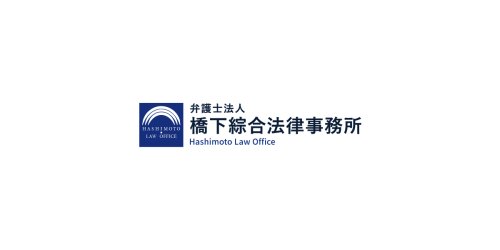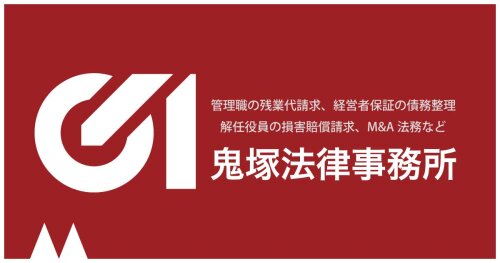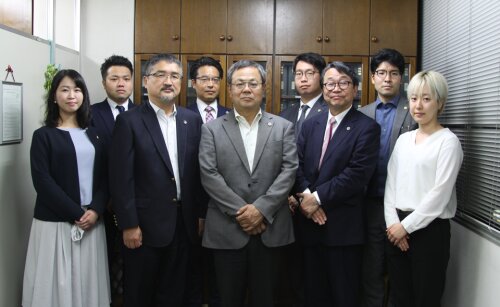Best Employment Rights Lawyers in Japan
Share your needs with us, get contacted by law firms.
Free. Takes 2 min.
Or refine your search by selecting a city:
List of the best lawyers in Japan
About Employment Rights Law in Japan
In Japan, employment rights are primarily governed by the country’s Labor Standards Act, which sets minimum standards for working conditions. These include provisions related to wage payments, working hours, overtime, holidays, and leave policies. The aim is to ensure a fair and safe working environment for all employees. Additionally, the Equal Employment Opportunity Act addresses discrimination in the workplace, promoting gender equality and protection against unfair treatment in hiring, promotion, and employment terms.
Why You May Need a Lawyer
There are several situations where an individual may need legal assistance related to employment rights in Japan:
- Unfair Termination: If you believe you have been unfairly dismissed from your job, a lawyer can help you understand your rights and pursue legal action if necessary.
- Workplace Discrimination: Legal assistance may be required if you face discrimination based on gender, age, disability, or nationality.
- Unpaid Wages or Overtime: If your employer does not comply with payment obligations, a lawyer can help you recover owed wages.
- Harassment: Legal intervention might be necessary in cases of sexual harassment or workplace bullying.
- Contract Disputes: Disagreements regarding terms of employment contracts can often require legal clarification or renegotiation.
Local Laws Overview
Japan's employment laws include several key elements particularly relevant to employment rights:
- Labor Standards Act: This law mandates minimum conditions around working hours, breaks, overtime, and ensures basic protection for employees.
- Equal Employment Opportunity Act: Aims to eliminate gender-based discrimination and promote equality in the workplace.
- Minimum Wage Act: Establishes the minimum amount that can be paid to employees per hour, which can vary by region.
- Labor Contracts Act: Provides a framework for employment contracts, including terms and conditions.
- Industrial Safety and Health Act: Ensures a safe working environment via employer obligations to manage and reduce workplace hazards.
Frequently Asked Questions
What rights do I have if I am unfairly dismissed in Japan?
If you are dismissed without just cause, the termination may be invalid. You can negotiate for reinstatement or compensation with the help of a labor lawyer or labor union.
How can I handle workplace harassment in Japan?
Workplace harassment should be reported to your HR department. If the issue persists, legal advice may be necessary, and you can consider filing a complaint with the Labor Bureau.
Am I entitled to paid leave if my employer declares bankruptcy?
In cases of employer bankruptcy, employees may still claim unpaid wages through a governmental wage payment fund, but procedures can be complex, necessitating legal consultation.
What constitutes overtime under Japanese labor law?
Any work exceeding 40 hours a week or 8 hours a day is generally considered overtime, for which employees are entitled to a higher pay rate.
Are there specific laws concerning foreign workers in Japan?
The same labor laws apply to both Japanese and foreign workers. However, foreign workers must ensure their work visa aligns with their job role and conditions.
Can my employer change my employment contract terms unilaterally?
Your employer cannot unilaterally change contract terms unless there is an agreement on the change or it is expressly written within the initial contract conditions.
How are employment disputes typically resolved in Japan?
Disputes may be resolved through negotiation, mediation, or litigation, depending on the complexity and parties' willingness to settle amicably.
What is the role of labor unions in Japan?
Labor unions play a crucial role in protecting workers' rights, negotiating better conditions, and providing support during disputes.
What do I do if I experience wage theft?
Document all working hours and payments, approach your employer with facts, and if unresolved, seek assistance from the Labor Standards Inspection Office.
How does the Labor Standards Inspection Office help employees?
This government body enforces compliance with labor laws and investigates disputes related to working conditions, wages, and safety.
Additional Resources
- Ministry of Health, Labor, and Welfare: Provides comprehensive information on employment standards and worker rights in Japan.
- Japan Federation of Labor and Social Security Attorney’s Associations: Offers guidance and connects individuals with legal professionals specializing in labor laws.
- Labour Standards Inspection Offices: Local offices that handle employee complaints and ensure compliance with labor laws.
- Trade Union Network: Provides support and advocacy for worker rights and can mediate in employment disputes.
Next Steps
If you require legal assistance for an employment rights issue, consider the following steps:
- Document Everything: Gather all relevant documents, communications, and evidence related to your case.
- Contact a Labor Consultant or Lawyer: Seek professional advice from a labor consultant or attorney specializing in employment law.
- Explore Mediation: Consider mediation services offered by local labor bureaus as a first step to resolving disputes.
- File a Complaint: If necessary, submit a formal complaint to the appropriate labor authority or pursue legal action.
- Join a Union: Engage with a relevant trade union for additional support and advocacy.
Lawzana helps you find the best lawyers and law firms in Japan through a curated and pre-screened list of qualified legal professionals. Our platform offers rankings and detailed profiles of attorneys and law firms, allowing you to compare based on practice areas, including Employment Rights, experience, and client feedback.
Each profile includes a description of the firm's areas of practice, client reviews, team members and partners, year of establishment, spoken languages, office locations, contact information, social media presence, and any published articles or resources. Most firms on our platform speak English and are experienced in both local and international legal matters.
Get a quote from top-rated law firms in Japan — quickly, securely, and without unnecessary hassle.
Disclaimer:
The information provided on this page is for general informational purposes only and does not constitute legal advice. While we strive to ensure the accuracy and relevance of the content, legal information may change over time, and interpretations of the law can vary. You should always consult with a qualified legal professional for advice specific to your situation.
We disclaim all liability for actions taken or not taken based on the content of this page. If you believe any information is incorrect or outdated, please contact us, and we will review and update it where appropriate.
Browse employment rights law firms by city in Japan
Refine your search by selecting a city.
















